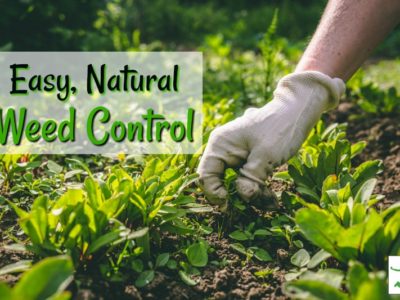Top Natural Weed Control Methods for Small Gardens

Top Natural Weed Control Methods for Small Gardens
Gardening is a delightful hobby, but it can be a bit of a challenge when weeds start to take over. If you're looking for natural weed control methods for small gardens, you've come to the right place. Let's dive into some effective, non-toxic methods that will keep your garden looking pristine without harming the environment.
Understanding Weeds
Before we get into the nitty-gritty of weed management, it's important to understand what weeds are and why they grow. Weeds are simply plants that grow where you don't want them to. They compete with your desired plants for water, sunlight, and nutrients. Identifying weeds is the first step in controlling them. You can use resources like this weed identification guide to help you out.
Why Choose Natural Weed Control?
Choosing organic weed control methods is not just about being environmentally friendly; it's also about maintaining the health of your garden. Chemical herbicides can harm beneficial insects, pollute water sources, and even affect your health. Natural methods, on the other hand, are safe and effective.
Top Natural Weed Control Methods
Mulching
Mulching is one of the most effective non-toxic methods for weed control. By covering the soil with a layer of organic material like wood chips, straw, or compost, you can prevent weed seeds from germinating. Mulch also helps retain moisture and regulates soil temperature, making it a win-win for your garden.
Hand Weeding
Sometimes, the old-fashioned way is the best way. Hand weeding is a straightforward method that involves pulling weeds out by their roots. It's a bit labor-intensive, but it's incredibly effective. Make sure to get the entire root system to prevent regrowth.
Solarization
Solarization is a technique that uses the power of the sun to kill weeds. It involves covering the soil with a clear plastic sheet during the hottest months of the year. The heat generated under the plastic kills weed seeds and pathogens in the soil.
Boiling Water
Boiling water is a simple and effective way to kill weeds. Just pour boiling water directly onto the weeds. This method is particularly useful for weeds growing in cracks and crevices. Be careful not to pour the water on your desired plants, as it will kill them too.
Vinegar
Vinegar is a natural herbicide that can be used to kill weeds. The acetic acid in vinegar burns the leaves of the weeds, causing them to die. For best results, use vinegar with a high acetic acid concentration (20% or more) and apply it on a sunny day.
Corn Gluten Meal
Corn gluten meal is a natural pre-emergent herbicide. It prevents weed seeds from germinating by inhibiting root formation. Apply it to your garden in early spring before weeds start to grow.
Newspaper and Cardboard
Layering newspaper or cardboard over the soil can prevent weeds from growing. The paper blocks sunlight, preventing weed seeds from germinating. Over time, the paper will decompose, adding organic matter to the soil.
Ground Covers
Planting ground covers is an excellent way to control weeds naturally. Ground covers like clover, creeping thyme, and ice plant form a dense mat that prevents weed seeds from germinating. Plus, they add beauty to your garden.
Companion Planting
Companion planting involves planting certain plants together to benefit each other. Some plants naturally repel pests and weeds. For example, planting marigolds can help control nematodes (microscopic worms) in the soil.
Proper Garden Maintenance
Regular garden maintenance is key to keeping weeds at bay. Keep your garden beds clean, remove dead leaves and debris, and maintain a healthy soil structure. Healthy soil is less likely to harbor weed seeds.
Benefits of Natural Gardening
Natural gardening is not just about controlling weeds; it's about creating a healthy ecosystem in your garden. By using natural methods, you're encouraging beneficial insects, improving soil health, and reducing your environmental impact.
Conclusion
Controlling weeds naturally doesn't have to be a daunting task. With a little bit of effort and the right techniques, you can keep your garden looking beautiful without resorting to harmful chemicals. Remember, weed management is an ongoing process, but with these natural weed control methods for small gardens, you'll be well on your way to a weed-free garden.
FAQs
What is the best natural weed killer?
The best natural weed killer depends on your specific needs. Vinegar, boiling water, and corn gluten meal are all effective natural weed killers.
How can I prevent weeds from growing in my garden?
Preventing weeds involves a combination of methods, including mulching, solarization, and planting ground covers. Regular garden maintenance is also crucial.
Are there any natural pre-emergent herbicides?
Yes, corn gluten meal is a natural pre-emergent herbicide that prevents weed seeds from germinating.
How often should I weed my garden?
The frequency of weeding depends on the size of your garden and the type of weeds you're dealing with. Aim to weed your garden at least once a week during the growing season.
Can I use salt to kill weeds?
While salt can kill weeds, it's not recommended for use in gardens. Salt can harm the soil and make it unsuitable for plant growth. Stick to safer, more environmentally friendly methods like vinegar or boiling water.
0 Response to " Top Natural Weed Control Methods for Small Gardens"
Post a Comment